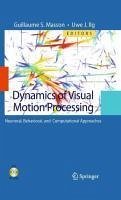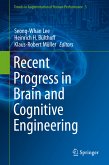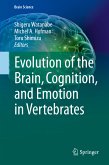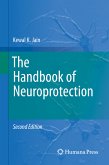Visual motion is an essential piece of information for both perceiving our environment and controlling our actions. The visual motion system has evolved as an exquisite machinery adapted to reconstruct the direction and speed of the object of interest within a few dozen milliseconds. In the last decade, tremendous progress has been made in the understanding of how the outputs of local motion detectors are integrated. In particular, its dynamics are now unveiled at neuronal and behavioral levels. Solutions for fundamental computational problems such as the aperture problem and the interplay between motion segmentation and integration have been proposed from these works and biologically-realistic simulations are been proposed. Such a multi-level approach is rooted in the fact that dynamics of these solutions can be tackled at different scales using similar tasks and stimuli. Dynamics of Visual Motion Processing offers an overview of recent work on the dynamics of motion integration with inter-related examples taken from physiology (both single-neuron and population activity) and psychophysics as well as sensorimotor control or active vision. The last section presents three different approaches for understanding and modeling motion perception of natural scenes, complex 3D layout, and biological motion.
About the Editors:
Guillaume S. Masson is Director of Research at the Institut de Neurosciences Cognitives de la Méditerranée (CNRS & Université de la Méditerranée) where he is the head of the team Dynamics of Vision and Action. His research is devoted to understanding the sensory mechanisms involved in controlling our actions, in particular the link between visual motion processing and tracking eye movements. Behavioral studies conducted in both humans and animals are combined with physiological studies conducted at the population level.
Uwe J. Ilg is Professor at theHertie-Institute for Clinical Brain Research (HIH) and the Werner Reichardt Centre for Integrative Neuroscience (CIN) in Tuebingen in the beautiful south of Germany. He tries to gain deeper insights into the fundamentals of sensorimotor integration underlying vision by a combination of perceptual and behavioral studies of humans and animals together with the analysis of single-unit response properties.
Dieser Download kann aus rechtlichen Gründen nur mit Rechnungsadresse in A, B, BG, CY, CZ, D, DK, EW, E, FIN, F, GR, HR, H, IRL, I, LT, L, LR, M, NL, PL, P, R, S, SLO, SK ausgeliefert werden.
Hinweis: Dieser Artikel kann nur an eine deutsche Lieferadresse ausgeliefert werden.









